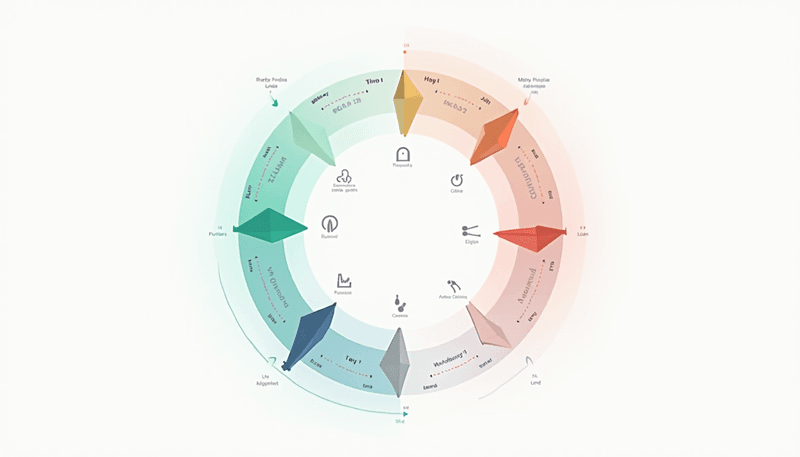New Hope for Early Menopause Treatment

Have you ever felt like your biological clock was racing ahead of schedule? For women facing premature ovarian failure (POF), this isn't just a metaphor – it's their daily reality. Recent research reveals groundbreaking insights into treating early menopause, offering new hope for those who thought their reproductive journey was over.
The Body's Natural Rhythm: A Key to Fertility
Think of your hormonal system as an orchestra. Each instrument (hormone) needs to play its part at exactly the right time to create beautiful music (optimal health). Traditional hormone replacement therapy (HRT) has been like having musicians play their parts without following the conductor's tempo. This new research suggests that mimicking the body's natural rhythm could be the missing piece of the puzzle.
"What if the secret to treating POF isn't just about what hormones we replace, but when and how we replace them?"
The study introduces a three-part harmony: natural hormone replacement that follows the body's monthly cycle, melatonin for sleep regulation, and resveratrol for antioxidant protection. This combination helped a 39-year-old woman with POF achieve natural pregnancy – something previously thought highly unlikely.
Timing Is Everything: The Power of Chronotherapy
Just as you wouldn't eat dinner right before bed, hormones work best when they follow your body's natural timing. The research shows that taking melatonin at night (50mg) and resveratrol in the morning (100mg) helps synchronize your body's internal clock.
Here's how you can apply this principle:
- Pay attention to your sleep-wake cycle
- Take supplements at consistent times
- Track your body's natural patterns using a cycle tracking app
"Have you noticed how your energy levels and mood naturally fluctuate throughout the month? That's your body's rhythm speaking to you."
Antioxidants: Your Ovarian Protection Squad
Think of your ovaries as a delicate garden. Oxidative stress is like pollution that can damage the flowers (eggs) before they bloom. The study used two powerful antioxidants – melatonin and resveratrol – as environmental protectors.
Practical ways to boost your antioxidant intake:
- Add colorful berries to your breakfast
- Include green tea in your daily routine
- Consider grape juice (natural source of resveratrol)
- Eat dinner earlier to support natural melatonin production
The Mind-Body Connection: Beyond Hormones
What struck me most about this research was the emphasis on overall well-being. The patient reported feeling better even before becoming pregnant. This highlights an often-overlooked aspect of reproductive health – the connection between emotional and physical health.
Supporting your mind-body connection:
- Practice stress-reduction techniques
- Maintain consistent sleep schedules
- Join support groups for women with similar experiences
- Document your journey and symptoms
"When was the last time you truly listened to your body's signals?"
The research results remind us that our bodies are incredibly complex yet remarkably responsive to the right support. While this specific treatment protocol requires medical supervision, the principles behind it – working with our natural rhythms, protecting our cells from damage, and maintaining overall wellness – are applicable to everyone.
Here's your action step: Start by focusing on one aspect of your daily rhythm. Whether it's establishing a consistent bedtime, adding antioxidant-rich foods to your diet, or beginning a symptom journal, small changes can lead to significant improvements in your reproductive health journey.
Remember: While this research offers promising insights, always consult with your healthcare provider before starting any new treatment protocol, especially regarding hormone therapy and supplements.

Amelia Grace Okonkwo
Amelia Grace Okonkwo is a freelance health writer and author with over 15 years of experience in health journalism, specializing in women's health and autoimmune disorders. With a background in biology and a Master’s in Public Health from Johns Hopkins, she combines scientific accuracy with a storytelling approach to make health information accessible and empowering. Amelia is known for her bestselling book, "The Skin We're In," which explores autoimmune disorders and their impact. She is passionate about delivering practical health insights for women, addressing topics from midlife wellness to mental health.







